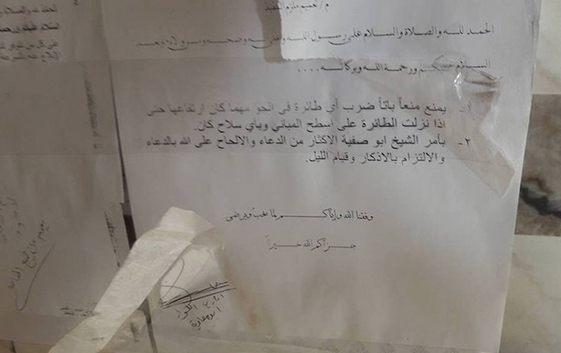|
The “liberation” of Mosul has been ongoing for nearly one month. Within this period, the International Coalition’s actions resulted in hundreds of casualties among civilians: some got killed by bombardments, others by inaccurate artillery strikes or because of the ground forces’ unsuccessful operations.
Besides, Iraqi civilians fall victims to ISIS terrorists who keep holding Mosul. Our media center reported that hundreds of local citizens for violating the ban on using mobile phones, simply for an attempt to leave the city without the required fee or permit or alleged assistance to the coalition forces.

Meanwhile, not only civilian casualties tie the US-led Coalition and ISIS. Today, Turkish news site Haber7 published some documents in which Abu Muawia, terrorists’ leader in the city of Bakhdida, not to shoot down any aircraft in the region.

The text of the decree reads:
“It is strictly forbidden to shoot down, using any weapons whatsoever, any aircraft that is in the air, no matter what height they are flying at, even if the aircraft lands on the rooftop of houses.”
It should be stressed that only coalition aircraft operate by Bakhdida city situated 32 km of Mosul. Actually, the terrorists have been ordered not to shoot down “friendly” AF.
Taking into consideration how actively Western donors support the Islamic State, such decrees seem quite reasonable. Obviously, Washington’s ultimate goal is not Mosul’s liberation or fighting ISIS but pushing the group towards Syria to counter Bashar al-Assad’s successes.
|